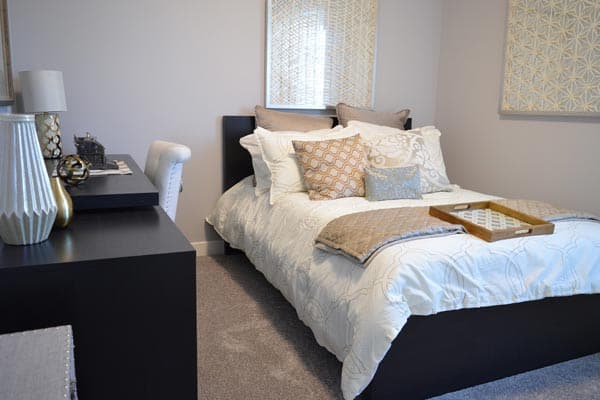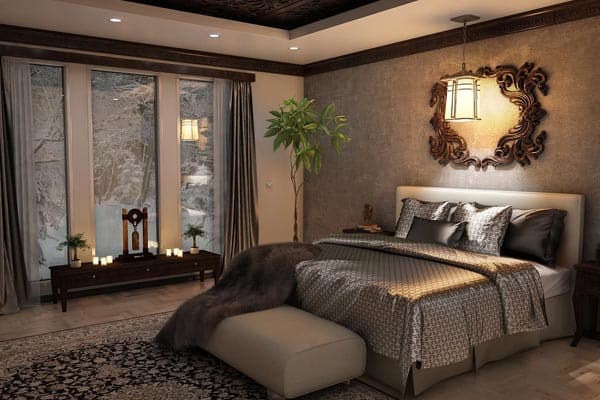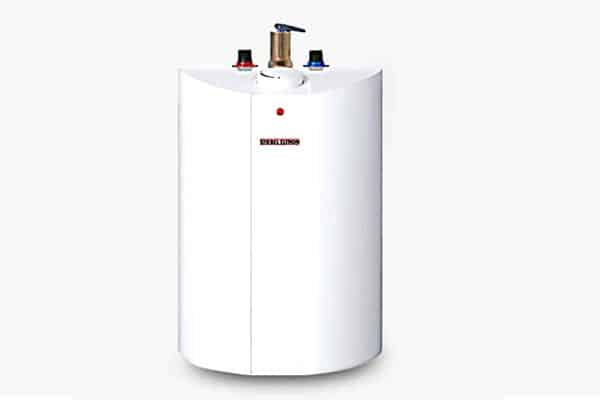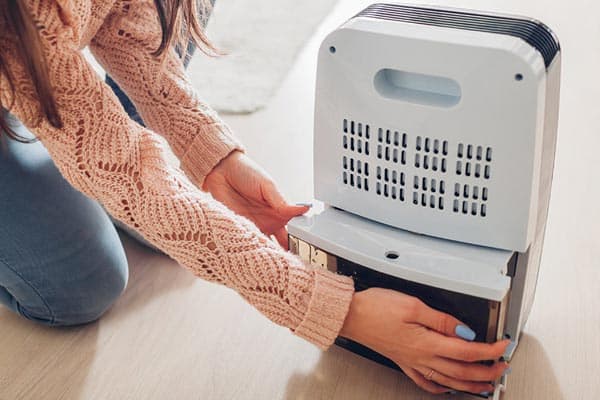11 Reasons Why Your Bedroom is Hotter Than the Rest of the House
Have you noticed that some rooms in the house always seem like they’re much hotter than others?
This is especially frustrating if it’s in the bedroom because it can be uncomfortable to try and go to sleep at night.
Several reasons could cause your room to feel hotter, no matter what you set your thermostat on.
Why is My Bedroom Hotter Than the Rest of the House?
- Clogged air filter
- Oversized AC system
- Inefficient, old windows
- Air duct problems
- Insufficient return air vents
- Closed air vents
- Poor insulation
Even though lots of people experience temperature fluctuations from one room to the next, especially in the bedroom, you don’t have to keep putting up with it.
We’re going to dive in and explain several factors that can play into these fluctuations, and you can narrow down the one that is causing your room to feel hotter than the rest of the house below.
Why One Room or the Bedroom is Hotter Than the Rest of the House
Unfortunately, this isn’t a cut-and-dried answer, and there could be several factors that come into play. However, we’ve rounded up the most popular reasons below, and you can see which one makes sense for your home.
1. Clogged Air Filters
Do you remember the last time you changed out your air filter? The air filter can be one of the most important components of your whole air conditioning system, and a dirty air filter will allow the whole system to circulate dust, dirt, and debris throughout every room in your home.
Just like you’d replace the air filter in your car, you should make a point to replace the air filter in your air conditioning unit at least once or twice a year. When the filter starts to get dirty, it’ll impede the airflow.
This can cause cool air to not reach the bedroom, and this can create temperature fluctuations.
2. Inefficient, Old Windows
If your home is older, the windows are most likely older and inefficient when it comes to sealing heat out of certain areas of the home.
If you replace your traditional double-pane windows with Low-E glass, you can help lower the amount of infrared and ultraviolet light that passes through them. In turn, this can result in less heat gain.
However, you should know that replacing your windows isn’t an easy or cheap task. If you don’t have the budget for it yet, consider adding a film or tint to the glass until you can afford to upgrade them.
3. Oversized AC System
Bigger isn’t always better when it comes to the AC unit, and it can cool your home too quickly if it’s too big for the space. It also strips out humidity, but if it runs in fast, short cycles, it’ll cool down the air while keeping it humid because it doesn’t have enough time to remove the humidity before it shuts off again.
If this is the case, you could notice that your bedroom is more affected than other rooms.
How you address this problem is tricky, but one thing you can do is add a dehumidifier to the house to help reduce the humidity levels.
If you notice that your energy bills are up, it might make more sense for you to replace the system with a smaller model that fits your home size better.
4. Air Duct Problems
If you have a problem inside your home’s ductwork, it can stop airflow from reaching specific rooms in the house.
Torn or crushed ductwork, uninsulated sections, disconnected areas, or leaks in the system can all cause problems with your airflow. In turn, some parts of the house will be hotter.
5. Windows Get Direct Sunlight
You may love how natural light makes your home look, but heat gain comes along with it. If you have newer windows that get direct sunlight every day, it can be hard to keep your home cool in the hotter months.
You could try to plant trees by your home for some shade, or you could put up awnings or blackout curtains to help shield your bedroom.
6. Closed Air Vents
Go through each room in your home and make sure that the air vents are open and that they don’t have any decor or furniture obstructions.
When the vents stay closed, this can impede airflow to the bedroom. It can also cause an imbalance throughout your system.
7. Return Air Vents are Insufficient
If your bedroom is always too hot and it looks like the air filter is two seconds away from getting sucked into your return air vent opening, the whole system isn’t getting enough air intake.
Get a filter that allows more air through and has a lower MERV rating. If this doesn’t help, you might have to install a second return air vent in the room.
8. Appliances and Electronics
Computers, especially setups that have high-end graphics cards installed, can easily generate a lot of heat.
Televisions, monitors, lamps, lights, LED clocks, and other electronics can easily generate a lot of heat too.
You can switch these items off when you don’t use them to stop them from generating heat, or you can switch out to LED bulbs.
Your stove, oven, refrigerator, and other kitchen appliances can also impact how hot, or cold a room feels, especially during scorching days. The goal is to try and only use the appliances when you need them to keep them cooler.
9. Poor Insulation
If your house doesn’t retain cold air during the hotter months, uneven or inadequate insulation could be to blame.
This is a big problem in older homes, and inadequate or missing insulation lets the heat sink in.
So, it won’t matter how hard your cooling system works because all of the cold air escapes while heat seeps right back inside.
10. More Than One Story
Multiple stories are very difficult to balance correctly because you have to account for the fact that heat rises and you need longer pieces of ductwork to get to all of your rooms.
Installing a zoned air conditioning system can help keep your rooms cool because it breaks your home up into different areas.
Each zone gets a temperature sensor or thermostat that automatically controls your ducts’ dampers and switches on and off accordingly.
11. Additions
Have you done a larger renovation in recent years, or have you added a smaller room? When your air conditioning system was originally installed, they fit it to your home’s specific layout and measurements.
If you added another room and didn’t take the time to install additional ductwork, the room may not get any or adequate airflow to keep it cool or warm it back up.
In some instances, you can add a window unit or a small portable heater to help keep the temperature steady in the bedroom.
If you add a large addition, you might want to talk with an HVAC technician to see what your options are.
Bottom Line
There are several reasons why your bedroom could be hotter than the rest of your home, and we’ve outlined 11 of the most common ones above.
You can take a look and see which one is causing your problem. When you address it, you’ll be able to get a bedroom that is just as cool as the rest of your house.






